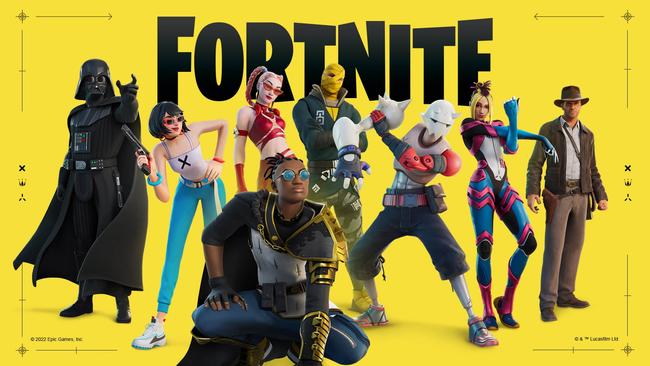Google operates in ‘competitive’ marketplace, Fortnite case hears
Gamers are ‘risk takers’ spoilt for choice when buying Fortnite says Google on its pricing structure that video game developer Epic argues is abusing market power.

More Fortnite players have “exclusively” spent money on the popular game outside Android devices and Google’s app store must engage competitively with Apple and match lower fees for digital content to entice developers, Google has argued in the Federal Court.
As the mammoth competition case launched by Fornite’s developer Epic stretches into its second week of about 16, Google’s barrister Cameron Moore SC has denied Epic’s claims tech giants Apple and Google have monopolised the app store market and are engaging in anti-competitive conduct.
Money spent on Fortnite is being kept secret, but during Mr Moore’s opening submissions he referred to a table which showed if users first saw the game on an Android device, 34.9 per cent bought digital content for the game on PlayStation compared with 21.6 per cent who made purchases on Android devices.
He went on to say a confidential figure showed an amount of people spent money, for example on “skins” or outfits in Fortnite, “exclusively outside” Android devices and a “much smaller” percentage spend their money on Android devices.
“V-bucks”, Fortnite’s in-app currency, can be purchased on multiple platforms and can be used on different devices, Mr Moore said. As well, he said, Epic can charge different prices for V-bucks on different platforms.

“Play Store’s business model is under increasing pressures including facing increasing competition,” Mr Moore said.
Epic Games has accused Apple of abusing its market power by charging 30 per cent of all money made on mobile apps and not allowing its own payment services, and Google of anti-competitive conduct with its own app store, the Play Store.
Not only does Google have to compete with other Android platforms where users can download apps — for example other android app stores like Samsung’s Galaxy Store and Amazon’s app store — or by “sideloading”, it must also compete with Apple, Mr Moore said.
“There is constant ... investment to attract developers. (It is an) attempt to (close) what had originally been a gap with Apple,” he said.
He said Google competes to attract users to Android, and competes to attract developers to create apps for Android.
“(There is an) example of Instagram (which) for a period of 18 months was exclusive to iOS. Instagram is popular and influential,” he said.
Mr Moore also used the dating app Tinder, which was once the Google Play Store’s second highest grossing app, as an example for why Google must give an “attractive deal to developers so they keep their content” on the Play Store.
Mr Moore said sometimes Android innovated first with Apple following, and vice versa. “That’s part of the competitive struggle between them,” he said.
For example, Google reduced its service fee from 30 per cent to 15 per cent in response to Apple having made the same changes to its app store commission rates, Mr Moore said.
A “significant majority” of Fortnite users were not dissuaded by security warnings they face if they installed the app by sideloading, or downloading an app off a website, and 75 per cent of people “went past those warning screens” according to evidence, Mr Moore said.
But Justice Jonathan Beach asked if that data was specific to “gamers” because they are “risk takers”.
“Would you agree the warnings are designed to have a psychological impact on users,” Justice Beach said.
Mr Moore said the point of the warnings was not to scare users if they choose to avoid the app store — thereby avoiding the commission collected by Apple and Google — but simply to warn them.






